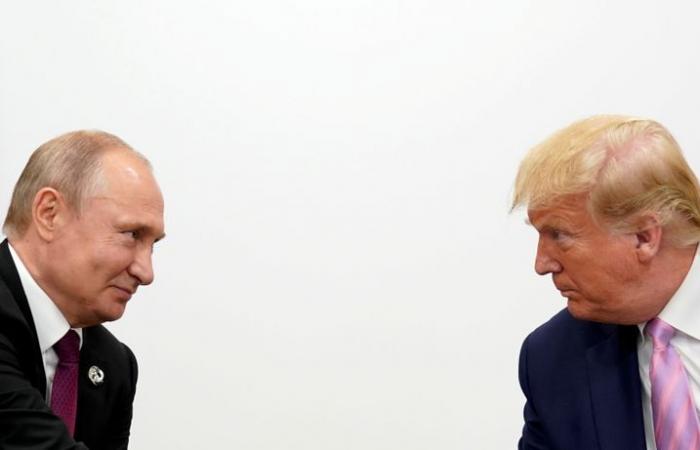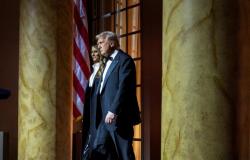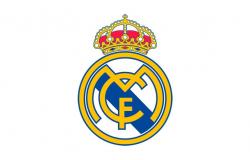
Keep or fold?
This is the dilemma facing the hundreds of Western companies still present in Russia, while Donald Trump returns to the White House with the promise of ending the Ukrainian conflict and the tightening of Moscow’s exit conditions makes departure more expensive.
Many companies, including Renault, McDonald’s and Heineken, have left Russia since Moscow sent troops to Ukraine in February 2022, generally taking hefty writedowns and selling their assets at sharply discounted prices demanded by the Kremlin.
Others stayed. Food and hygiene product manufacturers, such as PepsiCo, Procter & Gamble and Mondelez, have maintained their presence, citing humanitarian reasons. European creditors Raiffeisen Bank International and UniCredit remain trapped by profits blocked in Russia and the need to obtain exit authorization from Moscow.
Russia toughened its exit conditions in October to encourage companies to stay, requiring discounts of at least 60% on exit transactions and a 35% “voluntary contribution” to Russia’s budget on the price of transaction, described as an “exit tax” by Washington.
For this article, Reuters spoke to 15 lawyers, bankers, advisers and businessmen involved in dozens of Western company exits from Russia. They said the remaining companies would carefully watch what Mr. Trump, who will be sworn in as U.S. president on Monday, can bring and adjust their plans accordingly. Some requested anonymity to be able to speak freely.
“Trump’s election victory adds a new layer of uncertainty for multinationals with assets in Russia,” said Ian Massey, head of corporate intelligence, EMEA, at global risk consultancy S- RM. “As the Kremlin continues to increase the costs of exiting the Russian market, Trump could reduce the costs of staying in, creating a kind of stasis.”
What Trump can accomplish in his second term is far from clear, with his advisers now admitting it will take at least months to resolve the conflict.
Still, its mere arrival could give some companies the political cover to stay in Russia, while others might see the prospect of potential sanctions relief as an opportunity to leave.
“We could see some sanctions reduced if the new administration is able to negotiate a settlement to the Ukraine conflict,” said Alan Kartashkin, a partner at Debevoise and Plimpton. This could unlock some foreign-owned assets blocked in Russia, leading to a new wave of exit operations, he added.
Companies already reluctant to leave might be more inclined to wait, said one M&A investor who has worked on dozens of deals. Another person, who has advised more than 100 exits, said Mr. Trump’s return could also cause those seeking to cut ties with Russia to change their plans and decide to stay.
Alexei Yakovlev, director of the finance ministry’s financial policy department, told Reuters in December that negotiations on exit deals were underway, without naming specific companies.
Asked if Mr. Trump’s arrival could halt outings or see some businesses return, he said: “It’s beyond our understanding.”
EXIT TAX
Six people said a lot has changed since the relative freedom of negotiations of 2022, especially when it comes to navigating the whims and demands of the exit committee.
The Russian government is keen to protect the federal budget and close loopholes that allowed local buyers to snap up assets on the cheap. Transactions must now be evaluated by independent experts selected by the Russian Economy Ministry, and assets must be auctioned between local buyers.
Russian President Vladimir Putin must approve transactions above 50 billion rubles ($488 million) and buyers must demonstrate economic reasons for any transaction, such as showing that not purchasing a given factory could lead to a drop in production.
-“The possibility of selling a significant asset on the accepted minimum terms is significantly limited,” said a Russian lawyer.
According to one advisor, the number of transactions has fallen to less than 20% of what it was at its peak in mid-2023. Another said higher budget contributions are driving away sellers, particularly for management buyout transactions.
High interest rates (21%) have made financing transactions too expensive for some buyers, said Suren Gortsunyan, partner and co-founder of law firm Rybalkin, Gortsunyan, Dyakin and Partners (RGD).
RISK OF SEIZURE
Some large deals continue to go through and multinationals can extract funds from Russia because deals are now structured so that buyers pay exit tax.
Consumer goods company Unilever sold its Russian assets, including four factories, just before new restrictions took effect in October. According to a person familiar with the matter, the value of this transaction was around 500 million euros.
Unilever declined to comment.
Asset seizure remains the main risk facing companies that choose to stay, four people said. Russia has placed a dozen foreign assets under temporary management appointed by Moscow, which some say could be a tactic by Russia to lower the price for local buyers.
“Large assets for sale are under constant pressure,” said one corporate adviser.
When Moscow took control of Carlsberg’s stake in Baltika Breweries in July 2023, Carlsberg said its business had been stolen.
Less than a month before this seizure, she had found a willing buyer. That deal fell through, but in December the Danish brewer landed a 34 billion ruble sale of its assets, according to government documents seen by Reuters.
Carlsberg declined to comment beyond its previous statements.
Ultimately, for Western companies in Russia that are grappling with more costly exit rules and threats of seizure, Mr. Trump’s arrival brings more unknowns.
“Trump is a wild card,” said one financial services professional. “You don’t know what he’s going to do.
(1 $ = 102,4500 roubles)





